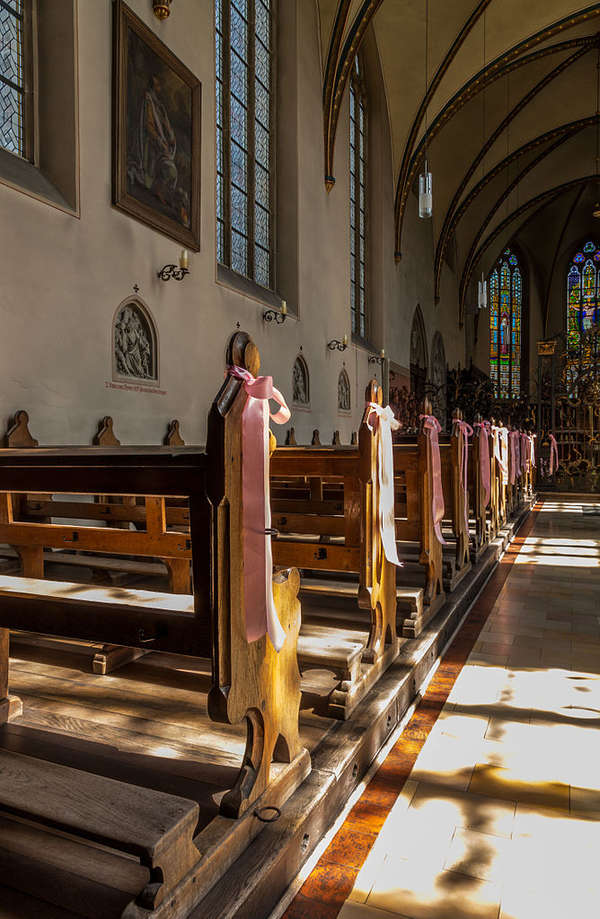We can’t afford more!? – When you have to pay for official church acts
- 31. March 2017 - General, Germany, Knowledge
Even today a wedding or a funeral may be expensive. Especially if you want to marry, there are many things that can affect the costs: the number of guests, the dress, if you get a DJ or a band… And there are many older people that save money for their own funeral to unburden their descendants. Usually those financial burdens aren’t caused by fees charged by the churches though. This was different in the past.
Fees for official acts of the church
For a long time churches charged people for official acts they performed on special occasions like baptisms, weddings or funerals. In Germany these fees are called “Stolgebühren”. You had to pay extra for the ringing of the bells, paperwork and of course for the service itself.
For families and persons of poor financial means these fees were sometimes quite a problem. The clergy wasn’t allowed to charge the fees in advance, but only after the act, so it wasn’t possible to deprive people from services. And the poor shouldn’t usually have to pay them at all. But this was bypassed repeatedly.
This explains why children of one family often weren’t baptized shortly after birth but all together to reduce the expenses. This was contributed by the high infant mortality at the time. In case of an emergency an emergency baptism was possible after all. The fees probably were a reason to at least postpone a wedding as well. And funerals often were very frugal. Due to the costs, often at such occasions the church bells wouldn’t ring.
Occasionally Stolgebühren were mentioned in church books as jura stolae or taxa stolae.
Historic development
„Stolgebühr“ comes from the words „Stola“ (stole) and “Gebühr” (fee). This is due to the stole the clergy would wear to the occasions.
Stolgebühren emerged from the donations of the parishioners that were given by choice into the offertory box. The clergy would get a small part of that money. In early medieval times these donations already developed into fees. They were disputed especially if services were only given under the condition of a fee. As early as 1215 this was prohibited at the fourth Lateran council, but even after that there was often a misuse of the fees.
As people were long forced to use the services of the parish at their hometown it was under some circumstances even possible that they had to pay two clergymen: One of their own confession and one in their hometown. This explains that baptisms, weddings and funerals are sometimes not only mentioned in one but two church books.
Due to the implementation of church taxes, Stolgebühren became less important in 19th century. Civil registry and compulsory civil marriage contributed to this development as they caused a decline in church weddings or at least the fear of a decline.
Today the Protestant Church in Germany charges no Stolgebühren anymore. In Catholic Church it depends on the diocese. In some places there is still a fee. The diocese of Speyer for example lists Stolgebühren of 2 DM for baptisms, 12 DM for weddings and 8 DM for funerals since 1958. If they are charged at all, is decided by the parish. Even if you have to pay these fees, it can well be assumed that they will only be a minor part of the total costs.


0 comments